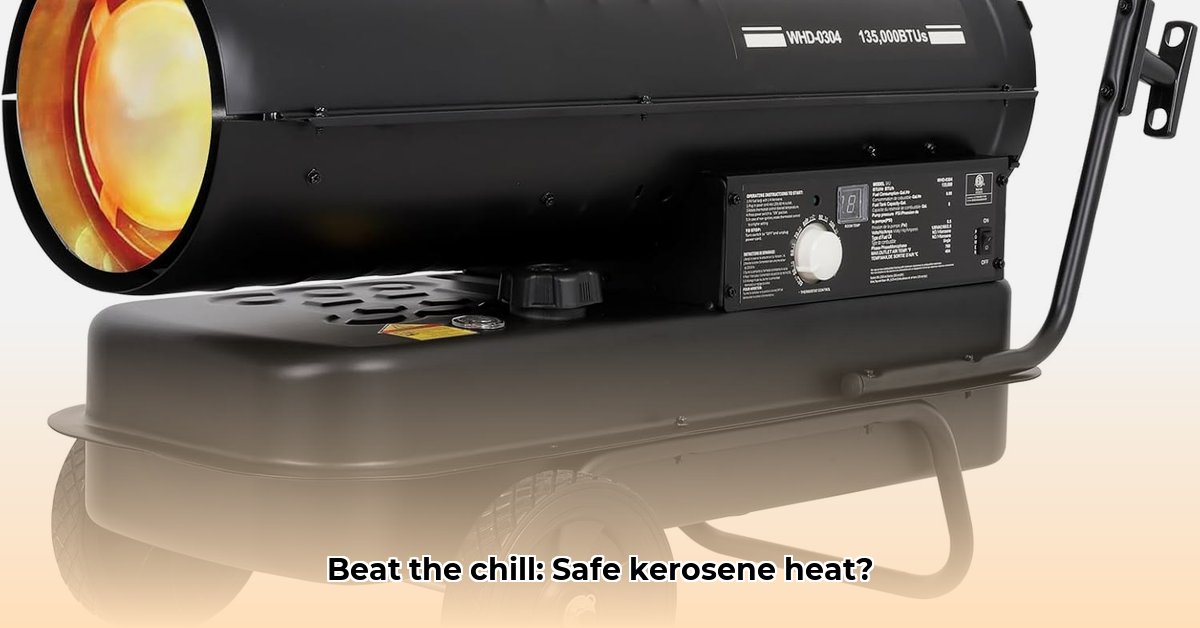
Winter's chill can be a significant problem, especially in rural areas or during power outages. Reliable heating is crucial, and kerosene heaters offer a readily available solution. This article focuses on kerosene heaters from Tractor Supply Co., examining their features, safety, and comparing them to alternatives. We'll guide you toward making an informed decision for your home heating needs. For more detailed information on Tractor Supply kerosene heaters, check out this helpful resource.
Kerosene Heaters at Tractor Supply: A Closer Look
Tractor Supply offers a range of kerosene heaters with varying features and capacities. Consider factors like heating capacity (BTUs), safety features (automatic shutoff, tip-over protection), and portability when making your selection. Larger spaces require higher BTU heaters. Choosing the right size and features ensures efficient and safe heating.
Kerosene vs. Fuel Oil Heaters: A Comparative Analysis
Both kerosene and fuel oil heaters provide warmth, but their characteristics differ significantly.
| Feature | Kerosene Heater | Fuel Oil Heater |
|---|---|---|
| Fuel Cost | Generally less expensive than fuel oil. | Typically more expensive than kerosene. |
| Portability | More portable and easier to move. | Usually bulkier and less portable. |
| Safety Features | Many models include safety features. | Safety features vary widely between models. |
| Environmental Impact | Lower greenhouse gas emissions. | Higher environmental impact due to emissions. |
Kerosene heaters are often better suited for smaller spaces, while fuel oil heaters might be preferable for larger areas. The choice depends on your specific needs and space size. Remember that proper ventilation is crucial for both types to prevent carbon monoxide buildup.
Safety First: Essential Precautions for Kerosene Heater Use
Safety is paramount when using kerosene heaters. Never leave a kerosene heater unattended. Adequate ventilation is crucial to prevent carbon monoxide (CO) poisoning – a serious and potentially fatal hazard. Always follow the manufacturer's instructions meticulously. Keep children and pets at a safe distance from the heater at all times.
Exploring Sustainable Heating Alternatives
While kerosene heaters provide immediate heat, sustainable alternatives exist. Heat pumps and solar thermal systems offer environmentally friendlier options, although they usually require a larger initial investment. However, lower long-term operating costs might make them a worthwhile investment. Consider your budget, climate, and heating needs before making a decision.
Choosing Your Perfect Kerosene Heater: A Buyer's Guide
Selecting the right kerosene heater involves several key steps:
- Assess Heating Needs (BTUs): Match the heater's BTU rating to the space you need to heat. Insufficient BTU output leads to inefficient heating.
- Prioritize Safety Features: Look for automatic shutoff and tip-over switches to minimize risks.
- Consider Portability: Choose a portable model if you need to move the heater frequently.
- Check Fuel Efficiency: Select a heater with a high fuel efficiency rating to reduce fuel consumption and costs.
- Set a Realistic Budget: Factor in the initial purchase price, ongoing fuel costs, and potential maintenance expenses.
Always ensure the heater complies with local safety and environmental regulations. Consulting online reviews can also provide valuable insights.
Reducing Your Carbon Footprint from Kerosene Heater Use
Kerosene heaters, while effective, contribute to greenhouse gas emissions. Minimizing their environmental impact is important.
Practical Steps to Reduce Kerosene Consumption:
- Improve Home Insulation: A well-insulated home requires less heating, reducing fuel consumption.
- Optimize Heater Placement: Strategic placement maximizes heat distribution and efficiency.
- Utilize Smart Thermostats (If Applicable): Programmable thermostats can optimize heating schedules.
- Supplement with Cleaner Heating: Combine kerosene heating with other, more sustainable options.
- Maintain Your Heater Regularly: Regular maintenance ensures efficient fuel burning.
- Explore Long-Term Alternatives: Consider heat pumps or solar thermal systems for long-term sustainability.
Proper ventilation and carbon monoxide detectors are crucial for safe kerosene heater operation.
Conclusion: Choosing the Right Heat for a Warm Winter
Choosing the right heating solution is vital for staying comfortable and safe throughout the winter. Kerosene heaters from Tractor Supply offer a convenient option, especially in rural areas. However, understanding their safety requirements, environmental impact, and the availability of sustainable alternatives are crucial for making an informed decision. By considering these factors, you can choose a heating solution that best serves your needs and budget.